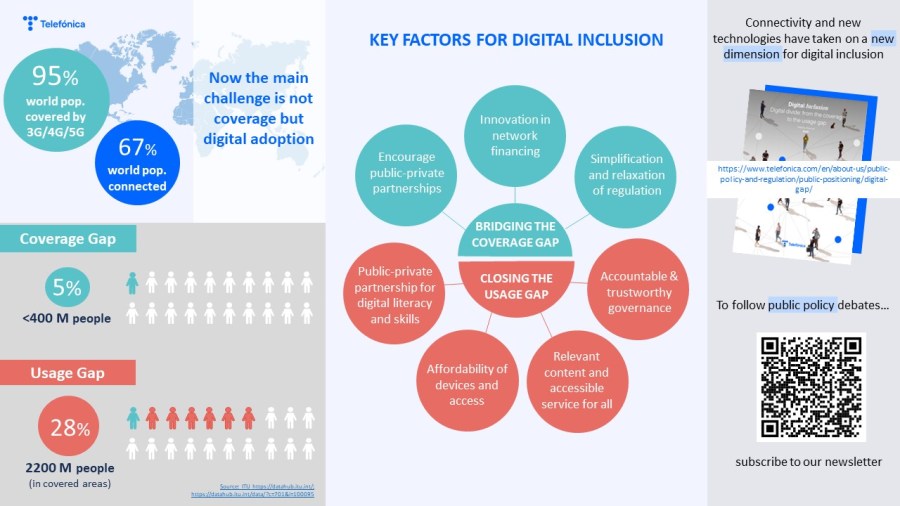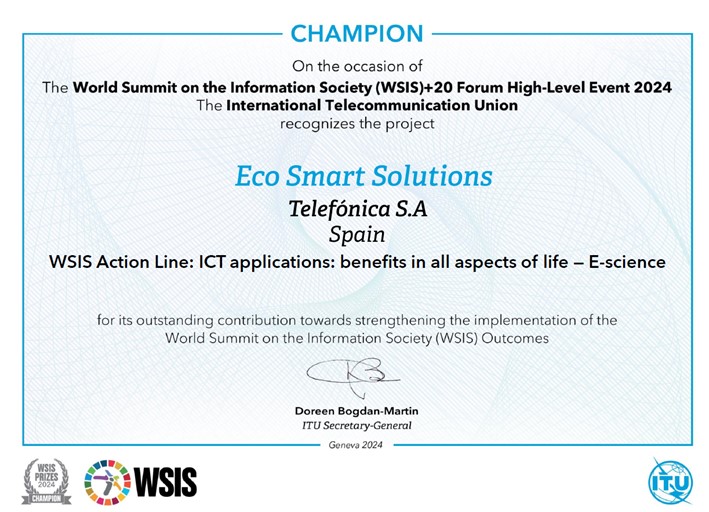The WSIS+20 High-Level Forum (World Summit on the Information Society or WSIS+20) was held in Geneva from 27 to 31 May 2024, co-hosted by ITU and the Swiss Confederation, and organised jointly with UNESCO, UNDP and UNCTAD. The event featured nearly 200 sessions and brought together some 8,000 participants (6,000 in person and 2,000 online) from 160 countries. The WSIS is one of the most important multilateral forum dedicated to Internet Governance.
This edition of the 2024 WSIS+20 High Level Meeting is a milestone. It signifies the realisation of twenty years of progress in the development and implementation of the governance principles of the World Summit on the Information Society, which took place essentially in two phases: Geneva in 2003 and Tunis in 2005. The Forum has served as a platform to take stock of achievements and trends, challenges and opportunities.
Business perspectives on the road to the WSIS+20 review
During the panel “Sharing business perspectives on the road to the WSIS+20 review” organised by the International Chamber of Commerce (ICC), we presented Telefónica’s vision on Digital Inclusion and the success story of Internet para Todos in Peru as an example of an innovative mechanism to improve the deployment of telecommunications infrastructure in rural and remote access areas, based on multi-stakeholder partnerships, adapted technologies and flexible regulation.
On the other hand, in terms of connectivity, the challenge of connecting the unconnected is already becoming above all a challenge of adoption, in a context where 95% of the population is in the 3G/4G/5G coverage footprint (and this when the electricity grid does not reach 92% of the population), while the population that regularly connects to the internet does not exceed 67%. This paradigm shift implies the need to refocus public policies to facilitate the adoption of digital services and technologies, thus promoting greater digital inclusion, without losing sight of other basic infrastructures (for example, only 57% of the population uses sanitation services).

Champions in WSIS Awards 2024
As part of the summit, the WSIS Awards are presented as a mechanism to showcase projects and activities that harness the power of ICTs to promote inclusive and sustainable development.
Telefónica has been nominated for 4 transformative projects. The aforementioned “Internet para Todos” project in Peru in Action Line C.2, which corresponds to Information and Communication Infrastructure. “Mujeres en Red” in category C.4, which corresponds to capacity building, and “Conecta empleo” in the category of e-employment, ICT applications for guidance and education in the digital transition. It is worth mentioning that Telefónica’s “Eco-Smart Solutions” project was highlighted as “Champion” in the category in which it participated. These are services offered by Telefónica based on connectivity, the Internet of Things (IoT), cloud, big data, artificial intelligence or 5G, which not only generate operational benefits and cost savings, but also environmental benefits. Specifically, they reduce energy and water consumption, CO₂ emissions and promote the circular economy.

Towards the Future Summit and beyond
Twenty years ago, the WSIS established the framework for global digital cooperation with the vision of building people-centred, inclusive and development-oriented information and knowledge societies. Over these years, the digital society has grown exponentially and the WSIS has been one of the main mechanisms for its governance. Based on the multistakeholder principle, governance mechanisms need to be adapted to include new disruptive technologies, such as artificial intelligence, while avoiding dysfunction and duplication. This was one of the main lines of discussion throughout the meeting.
In the context of the Global Digital Compact initiative, which will be concluded at the Summit of the Future in September, the modernisation of governance mechanisms is one of the key action points. In our view, there is a need to move from Internet governance to inclusive digital governance, which will allow for the balanced development of digitalisation based on high-capacity, next-generation telecommunications networks, while avoiding fragmentation of the Internet through the establishment of common standards.











